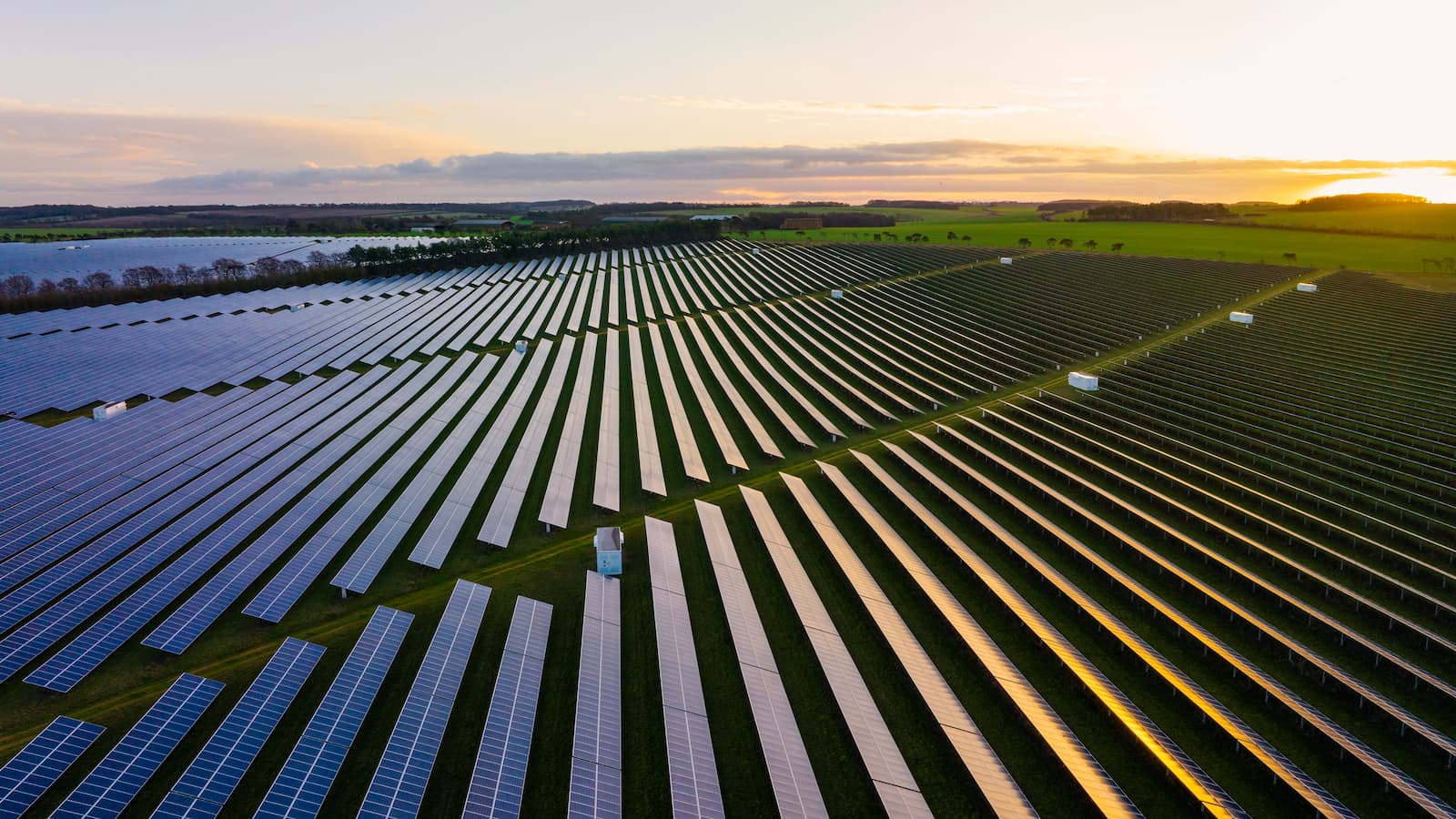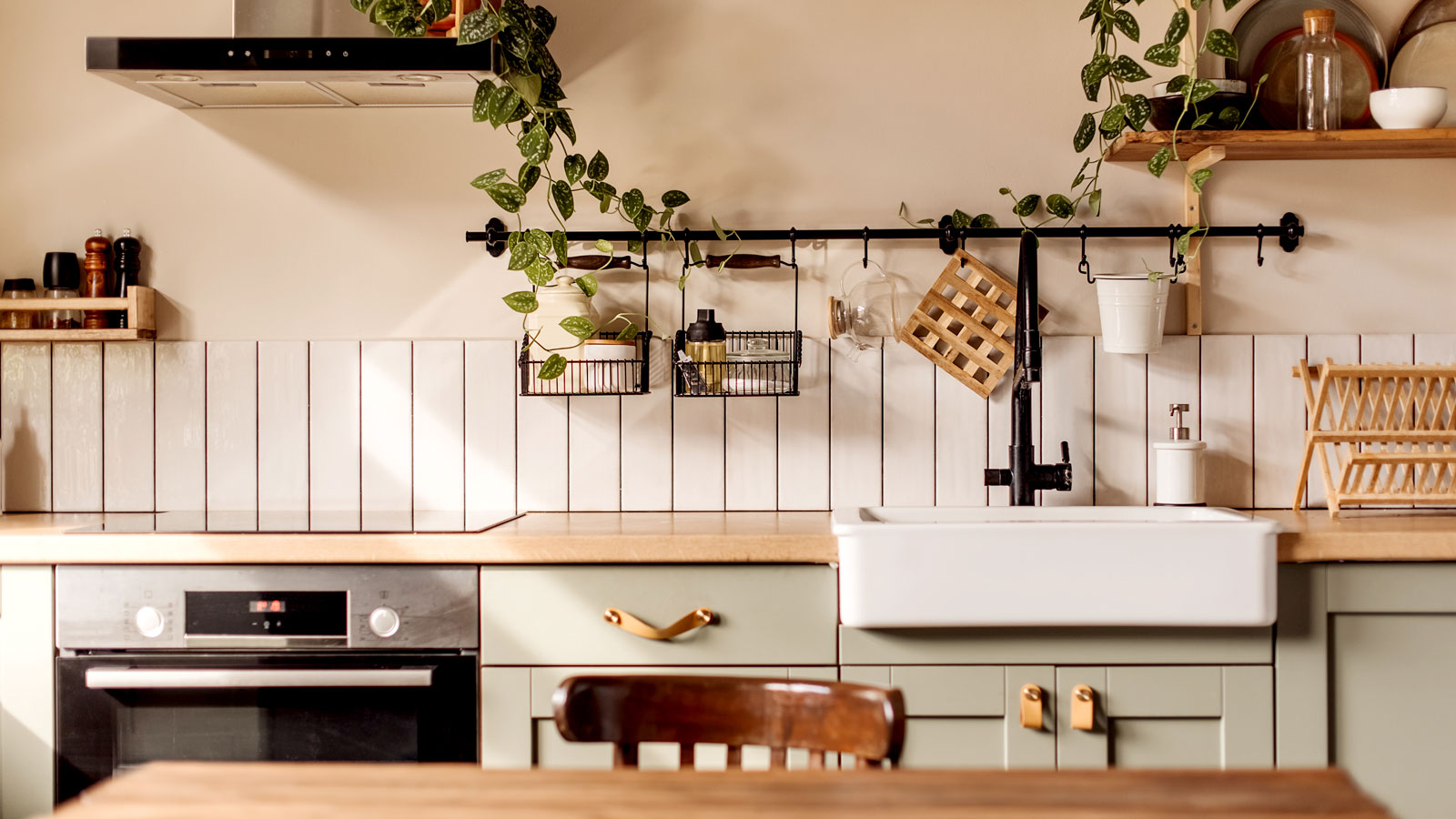Three solar farms that will become largest in the country get planning approval
The new farms will hold a capacity more than five times larger than the current largest solar farm and power more than 400,000 homes

Bring your dream home to life with expert advice, how to guides and design inspiration. Sign up for our newsletter and get two free tickets to a Homebuilding & Renovating Show near you.
You are now subscribed
Your newsletter sign-up was successful
The Labour Government approved plans for three major solar farms in the UK that are all more than five times larger than the largest existing solar farm in the country.
Secretary of State for Energy Security and Net Zero Ed Miliband approved the plans as part of a major push towards making Britain a "clean energy superpower" and combat energy price rises.
The decision has drawn criticism from Conservative MPs who claim the Government is "listening to the demands of Just Stop Oil than the needs of rural communities" with concerns over the effect of food production and the supposed rushed nature of the decision.
Where are the solar farms being installed?
The government has approved three major solar projects in the East of England, marking a series of green energy decisions by the new Labour administration last week.
Energy Secretary Ed Miliband has given planning permission for the projects at Mallard Pass in Rutland and Lincolnshire, Gate Burton in Lincolnshire and Sunnica in Suffolk and Cambridgeshire.
A spokesperson for one of the solar projects, Sunnica, said: “Sunnica is immensely pleased with the decision to grant development consent for Sunnica Energy Farm. Sunnica would make a nationally significant contribution towards the UK’s legal obligation to reach net zero emissions by 2050 and its ongoing energy security.
“This important milestone, and the decision by the Secretary of State, has come after many months of intense scrutiny and robust engagement with the planning process and wider public consultations."
Bring your dream home to life with expert advice, how to guides and design inspiration. Sign up for our newsletter and get two free tickets to a Homebuilding & Renovating Show near you.
How much energy is expected to be produced?
The Department for Energy Security and Net Zero (DESNZ) claim the solar farms will hold a capacity of 1.35 GWs, which is enough to power over 400,000 homes.
The Gate Burton project in Lincolnshire, developed by Low Carbon, is expected to hold a capacity of 500 megawatts (MW - one million watts), as is the Sunnica Energy Farm project on the Suffolk-Cambridgeshire border. The Mallard Pass solar farm on the East Coast Mainline in Lincolnshire and Rutland is predicted to hold a capacity of 350 MW.
All of these projects will far surpass the current largest solar farm in the UK, Shotwick Solar Park in Flintshire, Wales, which has a capacity of 72.2 MW.
Criticism drawn from Conservatives and farmers
Several Conservative MPs have criticised the solar farm plans, which were rejected by the previous Conservative Government.
Alicia Kearns, the Conservative MP for Rutland and Melton, is one of those to oppose the plans after threatening legal action against the Mallard Pass project.
She said: "I am utterly appalled that less than one week into his role, Ed Miliband has approved the Mallard Pass Solar Plant for construction."
Kearns criticised the project for ignoring community consent, human rights, and food security. She also accused it of supporting Uyghur slave labour in China's Xinjiang and questioned if the government had reviewed all documents since the election.
Shadow Energy Secretary Claire Coutinho also opposed the solar farms, stating: “It’s clear that Ed Miliband has more interest in listening to the demands of Just Stop Oil than the needs of rural communities.
"Climate policy cannot come at the expense of struggling families, or the nation’s food or economic security or it will fail.”
Farmer and TV presenter Nigel Owens MBE also questioned the decision on Twitter, stating: "Why on earth are we losing our food production ability on top quality land when there are other alternatives and places to put solar panels."
He said the decision was "reducing our ability to produce our own food" and claimed "there is a better way than this" in order to produce more sustainable energy.
Why on earth are we losing our food production ability on top quality land when there are other alternatives and places to put solar panels. The population is growing and yet we are reducing our ability to produce our own food. Is importing food more important to you Ed Miliband?… https://t.co/pwwrH7rkinJuly 17, 2024
Miliband says 'tough decisions' are needed to meet 'energy independence'
Labour has maintained that in order to meet the country's net zero goals and reduce energy bills "tough decisions" must be made.
Ed Miliband claimed: "Solar power is crucial to achieving net zero, providing an abundant source of cleaner, cheaper energy on the mission towards 2030.
"Some of these cases had been held up for months before I arrived in the department. They were put on my desk on Monday and I've made a decision in three days. This is the speed we're working at to achieve energy independence, cut bills for families and kickstart green economic growth.
"We will make tough decisions with ambition and urgency - all part of our plan to make the UK a clean energy superpower."
The solar farm decision comes shortly after Miliband lifted the ban on onshore wind farms.

News Editor Joseph has previously written for Today’s Media and Chambers & Partners, focusing on news for conveyancers and industry professionals. Joseph has just started his own self build project, building his own home on his family’s farm with planning permission for a timber frame, three-bedroom house in a one-acre field. The foundation work has already begun and he hopes to have the home built in the next year. Prior to this he renovated his family's home as well as doing several DIY projects, including installing a shower, building sheds, and livestock fences and shelters for the farm’s animals. Outside of homebuilding, Joseph loves rugby and has written for Rugby World, the world’s largest rugby magazine.
